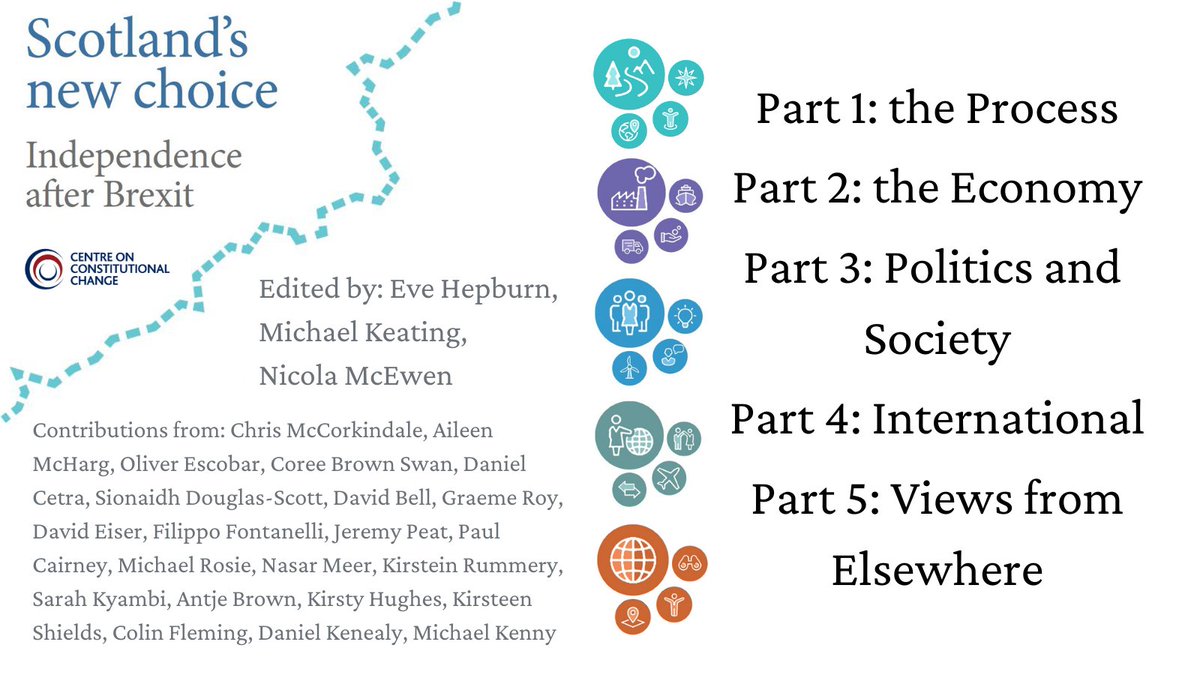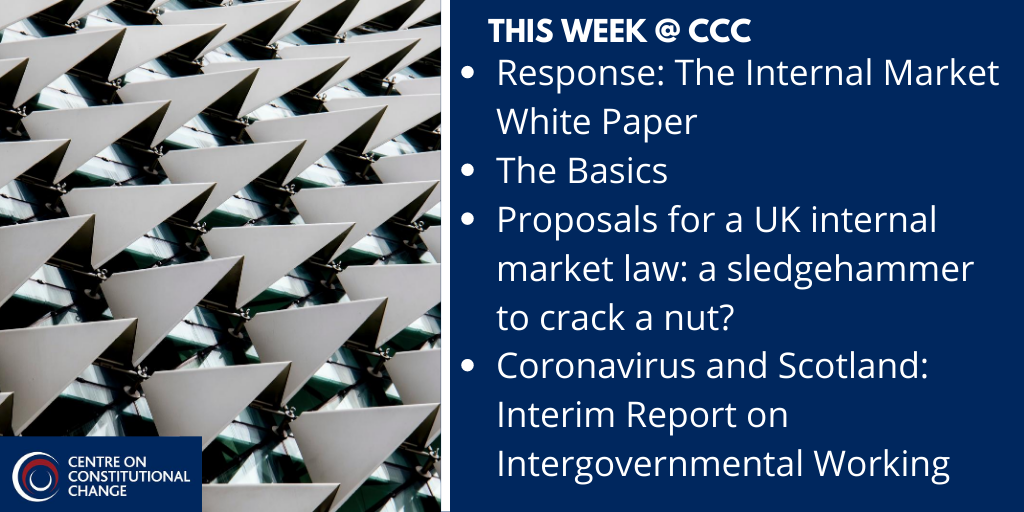Our @CCC_Research and @UKandEU event is kicking off with remarks from @McEwen_Nicola. We will be live tweeting the event using the hashtag #brexitwhatnext
@anandMenon1 of @UKandEU ‘we confront a series of highly implausible outcomes’ but will end up with one of them. #brexitwhatnext
@anandMenon1 - Tory mps have to appeal to an electorate which would prefer a #nodeal. Details of Brexit and public opinion here: ukandeu.ac.uk/wp-content/upl… #brexitwhatnext
@anandMenon1 runs through each of the Brexit options - no deal, delay, and remain, setting out the challenge to MPs posed by both. #Brexitwhatnext
@Usherwood Drew Scot of @EdinburghUni and @MaryCMurphy reflect on the Brexit process. Brian Taylor sets out the ground rules.
@Usherwood of @UKandEU sets out the perceptual, structural, and strategic problems of Brexit.
@Usherwood - points to weaknesses of all parties involved, lack of willingness to compromise, leading to current impasse #Brexitwhatnext
Westminster has become a “breeding ground for unicorns”, unlikely to come up with a “stable, resilient resolution of the problem” says @Usherwood of @UKandEU
Drew Scott of @EdinburghUni sets out the implications of Brexit for trade. A no deal Brexit would have “hugely debilitating impact on the UK’s trade”. Analysis suggests 10% fall in gdp. #brexitwhatnext
Drew Scott draws distinctions between customs union and a free trade agreement. Customs union might limit autonomy over trade policy. #Brexitwhatnext
More on the economics of Brexit from our friends @UKandEU ukandeu.ac.uk/theme/the-econ… #Brexitwhatnext
@MaryCMurphy sets out the implications of Brexit for Ireland, speaking to a growing sense of alarm with two countries on two different trajectories.
#Brexitwhatnext
#Brexitwhatnext
The #backstop is a legal guarantee, an insurance policy to protect Ireland, says @MaryCMurphy
Irish government has been adamant that there will be now #WithdrawalAgreement without a #backstop says @MaryCMurphy #Brexitwhatnext
@MaryCMurphy set out her analysis of Irish approaches to #Brexit on our site earlier in the week. centreonconstitutionalchange.ac.uk/blog/what-are-… #Brexitwhatnext
Widespread, all consuming interest in Brexit within Ireland, due to immense concerns about the impact of Brexit in Ireland - economic, political stability in Northern Ireland, psychological impact of Brexit @MaryCMurphy #Brexitwhatnext
The united Ireland debate is beginning to gain momentum in Ireland. A no deal scenario may contribute further. @MaryCMurphy #Brexitwhatnext
@Usherwood speaks to the possibility of an extension to the Brexit process. @MaryCMurphy speaks to Irish government concern of losing an ally at EU level. #Brexitwhatnext
Drew Scott speaks to the academic consensus on the negative economic consequences of Brexit. Stresses need for preferential trade agreement. #Brexitwhatnext
Brian Taylor asks our panelists to make predictions. @Usherwood says someone will make a mistake. Acceptance of withdrawal agreement seems most likely outcome given lack of consensus around other options. #Brexitwhatnext
@MaryCMurphy hopes that cooler heads prevail and common sense might rule the day #Brexitwhatnext
Drew Scott questions how we move forward from existing text and red lines of Prime Minister #Brexitwhatnext
• • •
Missing some Tweet in this thread? You can try to
force a refresh









